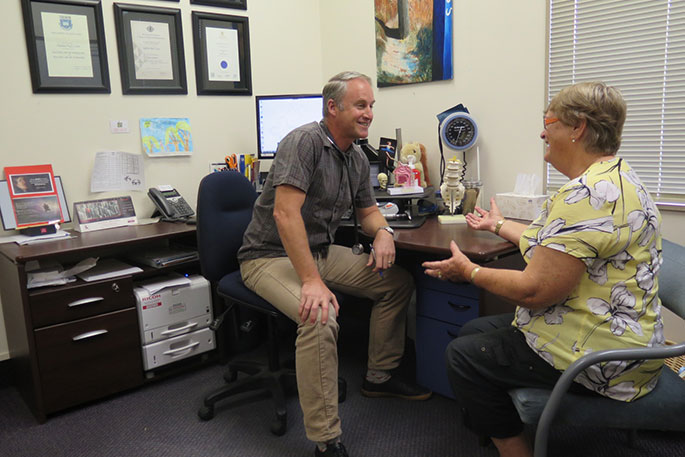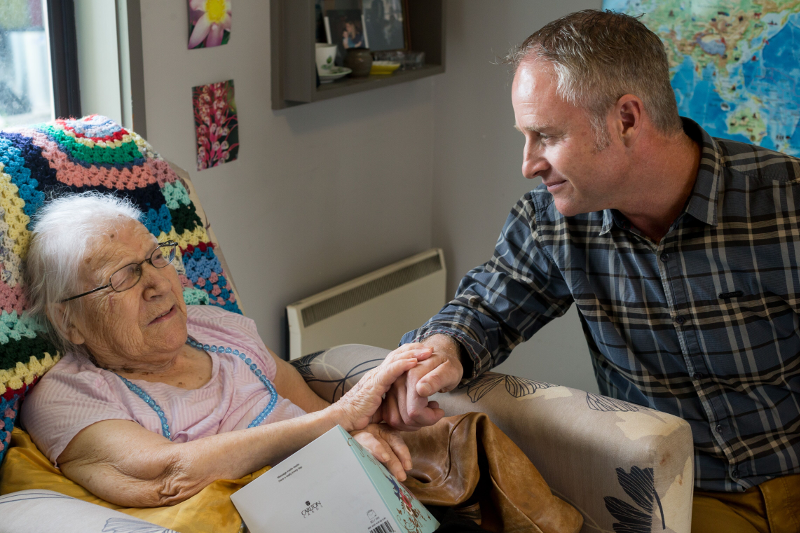Harari's premise is that all organisms are algorithms, from the biochemical pathways that convert nutrition into energy and energy into movement, to behavioral processes which drive a visual trigger to stimulate hormonally induced feelings of attraction. Whilst humans are highly complex algorithms, increasingly sophisticated artificial intelligence machines can (and in many cases do already) outperform humans in diagnostics, treatments and even elements of relationships (where they can analyze individual emotions, temperament preferences, biometrics, in the context of known information from vast and high-speed databanks, to make meaningful connections with humans).
From Yuval Noah Harari Homo Deus- A Brief History of Tomorrow Ch 11 The Data Religion:
'The 'New Motto' says - If you experience something, record it. If you record something, upload it. If you upload something, share it. Throughout this book we have repeatedly asked - what makes humans superior to other animals? 'Data-ism' has a new and simple answer. In themselves, human experiences are not superior at all to the experiences of wolves or elephants. One bit of data is as good as another. However, a human can write a poem about his experience and post it online, thereby enriching the global data processing system. That makes his bits count. A wolf cannot do this, hence all of the wolf's experiences, as deep and complex as they may be, are worthless. No wonder we are so busy converting our experiences into data. It is not a question of trendiness - it is one of survival. We must prove to ourselves and the system that we still have value. And value lies not in having experiences but in turning these experiences into free-flowing data....'Data-ism' is neither liberal nor humanist; it has nothing against human experiences, it just doesn't think they are intrinsically valuable...For the last 70000 years or so human experiences have been the most efficient data processing algorithms in the universe - hence there was good reason to sanctify them. However, we may soon reach a point where these algorithms will be superseded and even become a burden...Sapiens evolved in the African savannah tens of thousands of years ago and their algorithms are just not built to handle 21st century data flows....If we develop an algorithm that fulfils the same function better, human experiences will lose their value. Thus, if we can replace not just taxi drivers and doctors, but also lawyers, poets and musicians with superior computer programs, why should we care if these programs have no consciousness and no subjective experiences?'

Artificial Intelligence (AI) currently has wide application in medicine and healthcare. The doubling time of medical knowledge is exponential - in 1950 it took 50 years to double all medical learning; now it is less than 73 days. No healthcare practitioner can be expected to stay current with most, let alone all of the relevant knowledge in their specialty. The burdens of increasing need, depleted resources and insufficient time all add further loads limiting the clinician's capacity to provide good, if not high-quality care. Machines can do this. High-speed processing of vast databanks of information according to well-written algorithms allows AI to out-perform humans in tasks from diagnostics to best therapies, and population screening to pandemic management.
If we accept Harari's predictions, even in part, we need to wonder what our role as a species is in this new order. In healthcare, with the advent of virtual medicine, smart devices which allow patients to manage their medical conditions with live biometrics, and AI/chatbot tools being used to directly interact with patients, the question of the role of humans is germane. Moreover, studies have identified not only a higher degree of accuracy and safety from AI 'physicians' but also greater quality and empathy!
Nick Cave addresses the question of human versus machine in songwriting: "It’s a blood and guts business, here at my desk, that requires something of me to initiate the new and fresh idea. It requires my humanness.” His response - 'This Song Sucks' - to a ChatGPT song written in the style of Nick Cave is a short and striking read, and much of his 'blood and guts business' resonates with what it means to truly be a healer and to walk with patients as they navigate their lives.
The current model of healthcare risks conventional medical workers becoming anachronistic - stuck trying to deliver healing in a time that has been left behind by Harari's 'data-ism.' The longer we physicians hold on to a 'traditional' way of doing things, whilst patients discover AI-health providers, the more irrelevant we become.
And here is the good news! Harari's model of a machine which can out-perform humans in empathic immersion may be coming, however, it is a long way off. This gap is an opportunity for human healthcare workers to do what only we can do well. The notion of empathic concern has been shown to enhance a clinical relationship and deliver better outcomes compared with a less connected encounter between clinician and patient. Humans are complex and unique - the journey to step into the life of another, to genuinely seek to understand them in all of their unique complexity, is an 'algorithm' only we humans have the capacity to calculate and follow. My blog Empathy takes on defensive dehumanising explores the role of empathy in a clinical setting and how important storytelling is to inform this.


The JAMA paper referred to above, where respondents reported higher quality and empathy from the AI chatbot compared to human physicians, suggests my statement about the gap is poorly informed. However, the study accepts it did not replicate a typical patient-physician setting or relationship, and there are many more complexities in a usual patient's journey through health and wellbeing. Perhaps the 'better' empathic and quality response from chatGPT reported by users in the study was in part due to the humans being under pressure and poorly resourced for the genuine 'humanness' Nick Cave describes.
Positive Medicine is one such resource and paradigm shift to celebrate and enable humanness to be fully present in the clinical setting. The tagline on the Positive Medicine home page says: 'As world leaders in applying systems thinking to whole person health and healing, we synthesise the strengths of medical expertise with positive psychology, neuroscience, philosophy and ancient wisdom to teach people how to take control of their own lives and create the circumstances for homeostasis, the key to health and healing.' This sounds like an algorithm - and it is - however, it is one carefully curated and guided by humans who are trained and resourced in concepts such as helping patients find the answers within, moving locus of control from external to internal, and supporting patients in their wellbeing journey under the four pillars model - Te Whare Tapa Whā.

Such a Positive Medicine model is complimentary to the new world of medicine I have described. Machines and AI cannot, and will not for some time, be able to replicate the humanness that is central to empathic connection, and which is a core value for Positive Medicine Practitioners. In my capacity as a Positive Medicine Physician, and with a motivation to recover professional satisfaction and joy in my role as a healer, as well as finding a better way to help my patients achieve balance and wellbeing in their lives, I am conducting a pilot study as a proof of concept for Positive Medicine in General Practice. The early results are highly encouraging, with meaningful improvements in measures of self-efficacy, and comments from participants such as:
"This course has been a fantastic wake-up call- as obvious as a slap in the face with a wet fish! There are so many things that knock you off balance; having the tools/process to get back on track is fantastic for health/life."
"Allowing people to have control of their life, their journey, allows for better outcomes. Having someone to walk alongside makes this achievable. This model can do just that."
A tool, a process, and a partner to walk alongside - this is the complimentary wellbeing model where algorithm and empathic humanness can work together so we can all be at our most flourishing.
NB - no part of this blog was generated by nor sourced with AI support - perhaps it would have been better if it was!